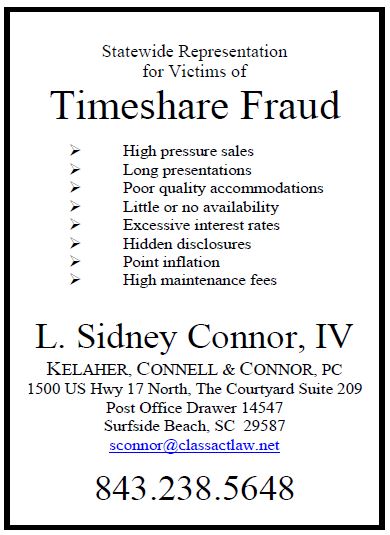Clear Agreements as the Best Prevention
| Publication year | 2022 |
| Pages | 40 |
Ensuring Your Family Law Case Succeeds on Appeal
By Jasmine D. Smith
Imagine this: Father and Mother have one child together, a ten-year-old son named Jake. During the marriage, Father was Muslim, and Mother was Jewish. Despite their religious differences, the couple never fought about religion. The couple raised Jake in the Jewish faith and enrolled him in a religious-based private school. Jake excelled academically and athletically. He participated in numerous extracurricular activities which required traveling out of state for competitions. The couple got Jake vaccinated with all the vaccines required to attend school and play sports.
When Jake was 12, the couple decided to divorce. The couple amicably entered into a separation agreement which was incorporated into the divorce decree. With regards to decision making, the agreement simply provided that the couple would share joint legal custody of Jake, and they would " consult with each other on matters of health, education, and religion" and that Father would pay for all extracurricular activities and "college expenses."
In 2020, two years after the divorce, Father converted to Christianity, and became extremely devout. He wanted Jake to practice the Christian traditions as well. He gave Jake a Bible and began taking Jake to church. Father no longer approved of Jake attending the Jewish private school, and so refused to continue to contribute to private school tuition. Father also refused to pay for any extracurricular actives associated with the school and made it clear that he would not contribute toward college if Jake did not attend a Christian, faith-based college. Father was vehemently against any consideration of any medical procedures, as they were against his religion.
Mother filed an action against Father in family court to hold him in contempt for violating the divorce decree by attempting to change Jake's religion, refusing to pay for private school, extracurricular activities and college, and opposing medical procedures and other vaccinations. The family court found for Mother on some issues and Father on other issues. Both parties seek to appeal the family court's order. One of them seeks your services for representation on appeal.
Although the facts of this hypothetical are fictional, similar cases have cropped up in South Carolina and across the United States, requiring appellate courts to make the ultimate decision. Will Jake be Christian or Jewish? Does Father have to continue to pay for private school? Will the Court require Father to pay for college? Does Jake have to get the COVID-19 vaccine?
This article outlines important steps for attorneys drafting separation agreements to keep in mind so that clients' decisions are upheld on appeal. It also offers insight on how South Carolina appellate courts may handle common issues to disputes in decision making regarding children.
Step 1: Have an agreement that is clear, plain, and unambiguous[1]
The first step to making sure the decision your client made is upheld on appeal is to make sure the separation agreement is plain, clear, and unambiguous and is written in such a way that it can withstand scrutiny. Once the issue reaches the appellate level, the appellate attorney can only work with what has already been drafted and made part of the record. It should come as no surprise that the best time to address decision-making issues is during the divorce proceedings, i.e., reach an agreement on the issues before the actual decision-making is required. Disagreements over child custody and control tend to pop up when differences in the parenting styles and philosophies become more apparent after divorce. The appellate courts in South Carolina prefer the parties reach agreements with regards to all issues during the divorce proceedings.[2]
General contract construction will apply to the appellate court's review of the terms of the separation agreement.[3] Therefore, clarity is key in the agreement. The agreement should state exactly what the parents will or will not agree to with regards to the decision-making involved when raising their child. The agreement should use terms that are simple and straightforward so that the Court can apply the ordinary meaning of the terms. Complex legal jargon and literary prose may lead to a Court finding the agreement is ambiguous or vague. Use language that is as clear as possible with the understanding that any agreement affecting children is always modifiable by the courts,[4] except agreements to pay college expenses[5] which requires consent of the parties. Under general contract construction, if the agreement is clear and unequivocal, the Court's only function will be to "interpret its lawful meaning, discover the intention of the parties as found within the agreement, and give effect to it."[6]
Anticipate the issues when drafting the agreement
Contracts are prospective documents. In other words, by executing a settlement agreement, the parents are looking into the future and trying to anticipate and plan for forthcoming behavior. This can be a difficult task with respect to minor children growing into adulthood. How will the parents know the child's future idiosyncrasies, interests, and proclivities? Much of that will come from understanding the child's personality and looking at the patterns of behavior at the time of the divorce. It is imperative that the parties determine a final decision maker in the event of a dispute. In drafting the agreement, the drafting attorney will ask the parent to anticipate as many issues requiring decision-making as possible. Take a long, hard look at the child's (and each parent's philosophy surrounding) religion, social issues, extracurricular activities, academic aptitude, etc. Parents should have extensive and thorough discussions to develop detailed provisions regarding their child's education, health, and religious practices in the separation or custody agreement.


Anticipate issues related to the child's education. What school will the child attend? Will the child be homeschooled and if so, under what parameters? Will the child attend private school, and if so, who will pay for the school? Who will pay for extracurricular activities, graduation fees, and school trips? Do you anticipate that the child will attend college? Do you anticipate that either parent will be required to pay for college, and if so, what should be included as a "college expense"?
Anticipate issues related to the medical decisions for the child. Are the parents aware of any medical issues for the child? How will the parents determine between necessary and voluntary medical care, such as vaccines, therapy, and braces? How will the parents handle emergency medical procedures?
Anticipate issues related to the child's religion or spiritual beliefs. Religion is often intertwined with decisions related to education, medical treatment, and parenting time. What will happen if one parent seeks to have the child enrolled in a religious private school when the other parent does not practice the same religious beliefs or has the final decision-making authority regarding the child's education? What will happen when one parent's religious beliefs require that parent to refuse certain medical treatment? What holidays and cultural practices will the child acknowledge and where will the child celebrate?
Finally, consider as many other decision-making issues as possible. In the technological world we live in today, as a child matures into adulthood, numerous decisions will be made regarding the child's socialization and exposure. At what age can the child have a cell phone? Who will pay the bill? Can the child have social media accounts and if so, what accounts, and at what age? Can the child play video games and if so, are some games prohibited? When can the child start driving or dating? Can the child have exposure to firearms or hunting? Is the child allowed to get tattoos or body piercings?
Step 2: Know and Understand How the Court Will Analyze Your Issue on Appeal
If there is no agreement on the issue, or if the agreement is unclear or ambiguous, as the appellate attorney, you will need to consider how the appellate court may decide the issue and the likelihood of success on appeal. By the same token, knowing how appellant courts will handle the issues on appeal can direct and assist drafters to create ironclad agreements.
The Court's purview


As a general matter, each parent has a constitutional right to make decisions regarding the care, custody and control of their children.[7]Under South Carolina law, each parent is equally responsible for the welfare and education of their minor child[8] and each parent has "equal power, rights, and duties, and neither parent has any right paramount to the right of the other concerning the custody of the minor or . . . any other matter affecting the minor."[9] Thus, without interference from any court, each parent has the right to determine the education, healthcare, and religion that is in the best interest of their child while the child is a minor.
If there is a dispute among the parents on these issues that reaches our appellate courts, on appeal, the appellate court will review the factual and legal issues de novo.[10] "Thus, the appellate court has the authority to find facts in accordance with its own view of the preponderance of the evidence."[11]"However, this broad scope of review does not require the appellate court to disregard the fact that the family court, which saw and heard the witnesses, was in a better position to evaluate their credibility and assign comparative weight to their testimony."[12] "Therefore, the appellant bears the burden of convincing the appellate court that the family court committed an error or...
To continue reading
Request your trial
